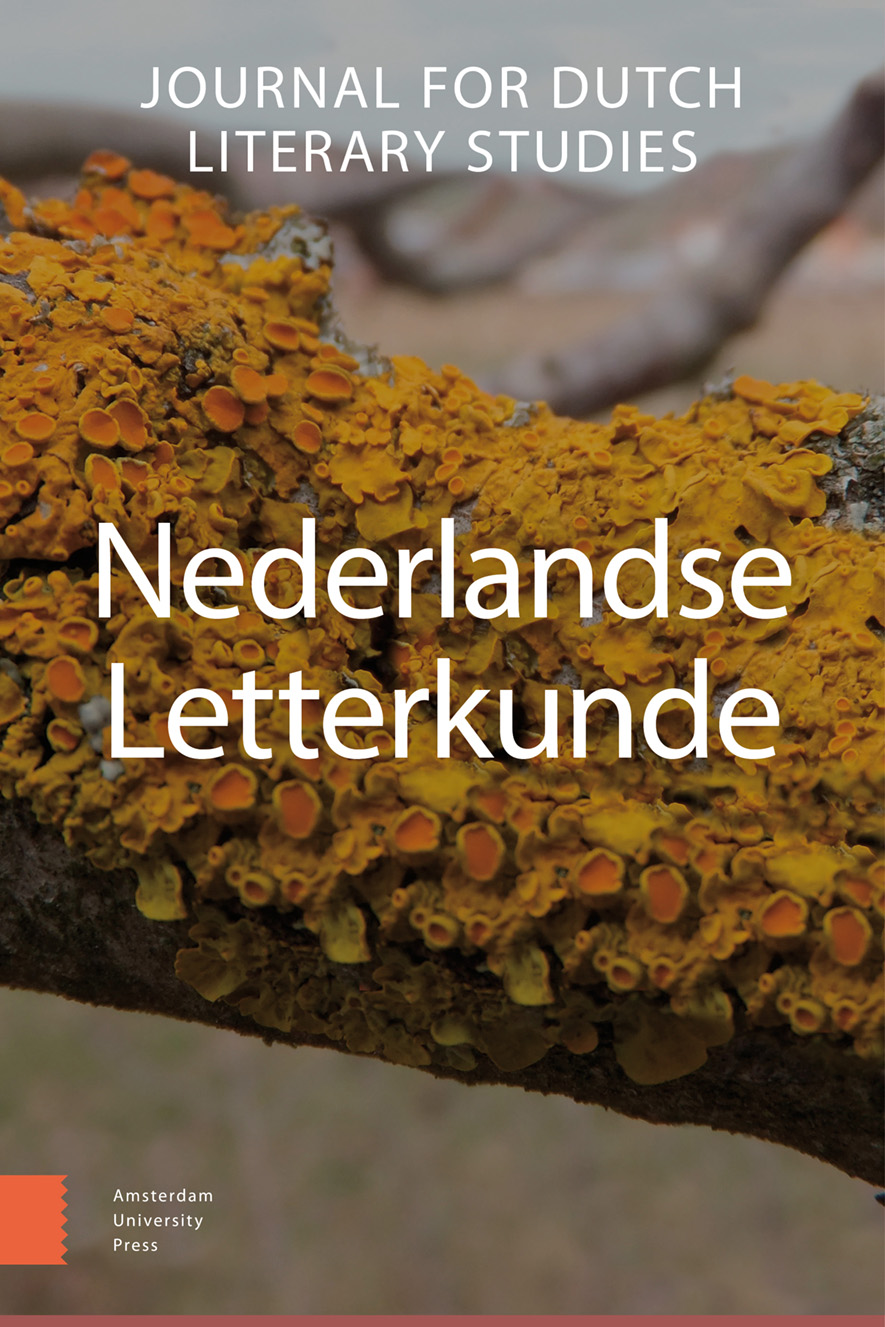- Home
- A-Z Publications
- Nederlandse Letterkunde
- Previous Issues
- Volume 29, Issue 2, 2024
Nederlandse Letterkunde - Volume 29, Issue 2, 2024
Volume 29, Issue 2, 2024
Language:
Dutch
- Artikel
-
-
-
Tweedracht in de tropen. Oriëntalistische opvattingen over emoties in het treurspel Agon, sulthan van Bantam (1769)
More LessBy Tim VergeerAbstract This article examines Agon, sulthan van Bantam (1769), a tragedy previously considered the first explicitly anticolonial play in the Dutch language. Purportedly examining Dutch aggression during the 1682 conquest of the Banten Sultanate from a Javanese perspective, Agon, as this contribution argues, reproduces stereotypical emotional identities with its Dutch and Javanese protagonists which refl Read More
-
-
-
-
Een dankbaar object van beschrijving. De verbeelding van mannelijkheid in Nederlandse romans uit de jaren 1890
More LessBy Sven VitseAbstract This article contributes to the emergent study of the representation of masculinity by focusing on the construction of masculinity in a corpus of five male-authored Dutch novels from the late nineteenth century. The analysis is guided by the assumption that masculinity, including the domestic, sexual and societal dispositions of men, is increasingly questioned towards the end of the nineteenth century. In the Nethe Read More
-
-
-
Emancipatie en de roman. Vrouwelijke personages in Nederlandstalige romans tussen 1960 en 2010
More LessBy Roel SmeetsAbstract The democratic, progressive and emancipatory potential of the novel has been emphasized many times by literary theorists. But although it has become a commonplace to frame the medium of the novel in this way, there is hardly any empirical evidence that novels historically reflect or shape social progress. Comparing two large corpora of Dutch novels from the 1960s and the 2010s, this article hypothesizes that gen Read More
-
- Recensies
-
Volumes & issues
Most Read This Month
Article
content/journals/13845829
Journal
10
5
false
en


